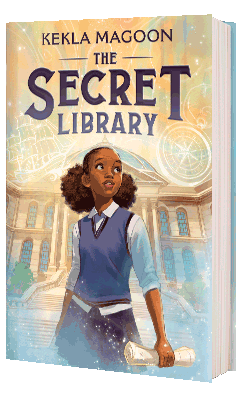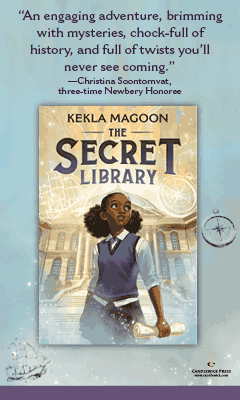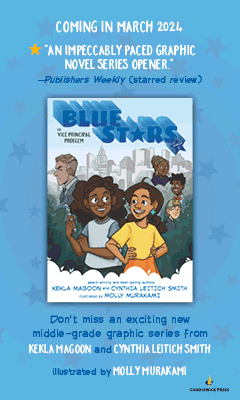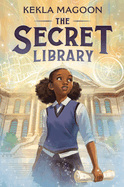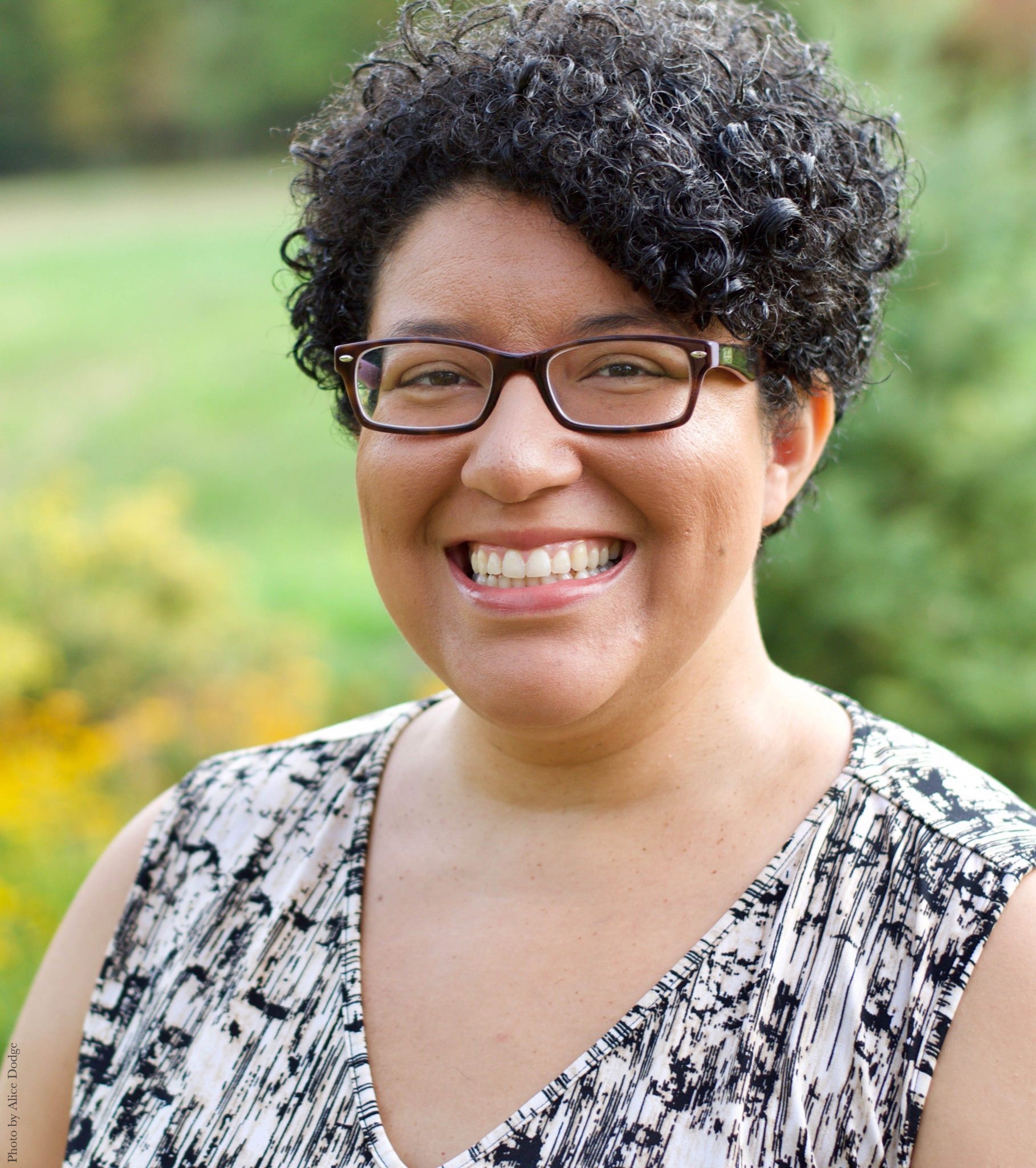The Secret Library
by Kekla Magoon
National Book Award finalist and five-time Coretta Scott King Award winner/honoree Kekla Magoon takes a deep dive into identity, family, Black history, and social justice with profound grace and sensitivity in The Secret Library, a gripping time-travel fantasy adventure.
Eleven-year-old Dally, daughter of a white mother and a Black father who died years ago, is being prepared by her mother to take over the family business. She is allowed almost no free time, and must schedule formal meetings with her "cool and confident" mother to request special privileges like joining the Adventure Club at school (she is denied). The death of her beloved grandpa leaves Dally with neither ally nor friend, as her classmates think her "strange," probably because of her creative mind and her rigid after-school schedule of business tutoring. When her mother insists on waiting until Dally is "of age" before giving her the envelope her grandfather left her, Dally rebels and breaks into the family safe to find the letter. In the envelope is a final letter from her grandfather and a mysterious hand-drawn map, which Dally promptly begins to decipher. The map's endpoint starkly reinforces her grandfather's last written words: "the past is prologue."
Dally is directed to a secret library, but, as the sign on the door clarifies, it's a secret library, not a secret library: "A library of secrets. You can even check them out, at your own peril." Here, patrons may peruse the stacks until they find a book that draws them in. After Dally selects a book containing an interesting secret, the librarian, charmingly named Jennacake, escorts her to the reading room, where the bewildered and curious child takes her first of many journeys, "travel[ing] to the moment when the secret occurred, or a moment when it was revealed or shared." She is hooked after the first book, and makes plans to sneak to the library every day. Unfortunately, Dally's daily life is so tightly circumscribed and monitored, her time to explore is severely limited. This leads to strife with her mother and the necessity to be sneaky. However, with (unknowing) help from Mr. Jerry, the family chauffeur, and a clandestine route through a bakery, Dally manages.
Dally's early explorations of family secrets are tame--discoveries of little white lies, and the housekeeper's hiding places for treats. She digs deeper, though, and finds herself embroiled in more personal and complicated times of "legal segregation, open prejudice, and structural barriers for people of color." She witnesses her parents' meeting, which is charged in ways that stun their future daughter. She flies a kite with her father before she's born and sees a tender, vulnerable side of her mother at a barbecue. Time travel as a Black or biracial person is potentially loaded with minefields, but for the most part Magoon places Dally in situations where she is able to participate and observe without being traumatized. She lands on a pirate ship with a white captain and Black first mate who interact with unspoken intimacy. She helps enslaved people escape via the Underground Railroad in her own South Carolina town. And she meets members of her family whose perceptions of race challenge and chill her to the core.
Throughout her travels, Dally begins to understand herself better, as well as the ways in which her ancestors' experiences have shaped her life. Her 21st-century sensibilities and values come up against historic attitudes about race, class, gender identity, and sexual orientation. Whenever Dally prepares to travel further back in time, Jennacake takes her to the "closet to end all closets, a veritable library-within-a-library of clothing and accessories" for a "wardrobe change" into more historically appropriate garb. The Dally of today, who understands that "gender [is] a social construct" and that people can love people regardless of gender, must quickly adjust to times and places in which gender roles are firmly set. Similarly, she witnesses all the ways that "the painful layers of racism ran deep." Learning that her loved ones were not the one-note people she thought they were gives her profound insight into their life choices.
In The Secret Library, Kekla Magoon (Revolution in Our Time; X: A Novel) tackles multiple complex and nuanced themes with tremendous empathy and perceptiveness. She reminds readers that every moment of their lives exists in context with the past and is setting context for the future--heady but important and relevant concepts for middle-grade readers. Dally's family is so jam-packed with generational secrets, it could (and ultimately does) take a lifetime to begin to disentangle them all. Magoon navigates the twisting threads with great care, slowly re-braiding them into a family narrative that is both shocking and socio-historically authentic--not to mention tender, funny, sad, and mind-bending. --Emilie Coulter



